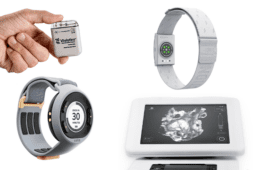Fabrice N. Vincent and Wendy R. Fleishman of the national plaintiffs’ law firm Lieff Cabraser Heimann & Bernstein, LLP, have announced that Robert Loiseau of Southampton, Pennsylvania, has filed a personal injury lawsuit against St. Jude Medical for injuries he suffered due to manufacturing defects in St. Jude’s Riata cardiac defibrillator leads.
Mr. Loiseau was implanted with a St. Jude-manufactured Riata lead in September 2007. In April 2012, Loiseau learned that the lead was defective and had to be removed. He underwent invasive surgery to remove and replace the defective lead on April 12, 2012. When the device was removed it was discovered that the lead had fractured and would have malfunctioned had Loiseau needed an electrical shock from his defibrillator. As a result of the defect, Loiseau suffered physical pain, mental anguish, and lost income.
“Deficiently manufactured heart leads can literally kill patients and require risky, painful surgeries to remove them, if they can be removed at all,” stated Vincent. “The complaint alleges in detail St. Jude’s utter disregard for good manufacturing and reporting practices with their Riata defibrillator leads.”
Numerous flaws in St. Jude’s manufacturing process caused the insulation on the heart lead wires to break down, resulting in the fracturing and premature failure of the Loiseau’s lead, the complaint alleges. The lawsuit was filed in federal court in Los Angeles, California, where St. Jude manufactured the allegedly defective and dangerous heart lead.
Background on the St. Jude Heart Lead and FDA Recall
St. Jude Medical introduced the Riata in 2002 and the Riata ST in 2005, followed by a purportedly improved Riata lead, named the Durata, in 2008. More than 250,000 St. Jude Riata and Durata leads have been sold worldwide. The devices are used in patients to control arrhythmias or irregular heartbeats.
On December 15, 2010, St. Jude Medical published a “Dear Doctor” letter regarding its Riata leads. In the letter, St. Jude indicated that the silicone used on these leads was “vulnerable to abrasion” and the abrasion had been associated with oversensing (leading to inhibition of pacing or inappropriate high voltage therapy), undersensing, and the inability to deliver the electrical shock.
Despite the dangers, St. Jude did not initiate a voluntary recall of the leads at that time. Rather, St. Jude simply noted that it would no longer sell the Riata lead.
On November 28, 2011, St. Jude Medical published a second Dear Doctor letter relating to the same set of Riata lead models as the 2010 Dear Doctor letter, noting that the failure rate of the leads had increased. On December 21, 2011, the U.S. Food and Drug Administration reclassified St. Jude’s Dear Doctor advisories as a Class I Recall. This type of recall applies when there is a reasonable probability that the use of or exposure to the product or device will cause serious adverse health consequences or death. That is, a Class I recall means the device is regarded as potentially dangerous and even lethal.




